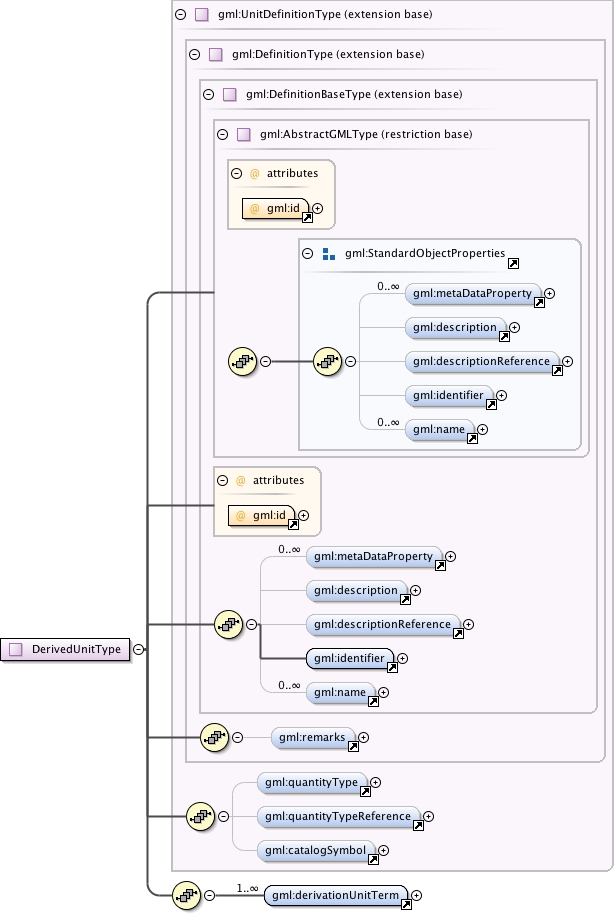| Namespace | http://www.opengis.net/gml/3.2 | |||||||||||||
|
Diagram
|
 |
|||||||||||||
| Type | extension of gml:UnitDefinitionType | |||||||||||||
| Type hierarchy | ||||||||||||||
|
Used by
|
|
|||||||||||||
| Model | gml:metaDataProperty* , gml:description{0,1} , gml:descriptionReference{0,1} , gml:identifier , gml:name* , gml:remarks{0,1} , gml:quantityType{0,1} , gml:quantityTypeReference{0,1} , gml:catalogSymbol{0,1} , gml:derivationUnitTerm+ | |||||||||||||
| Children | gml:catalogSymbol, gml:derivationUnitTerm, gml:description, gml:descriptionReference, gml:identifier, gml:metaDataProperty, gml:name, gml:quantityType, gml:quantityTypeReference, gml:remarks | |||||||||||||
|
Attributes
|
|
|||||||||||||
|
Source
|
|
|||||||||||||
| Schema location | http://schemas.opengis.net/gml/3.2.1/units.xsd |